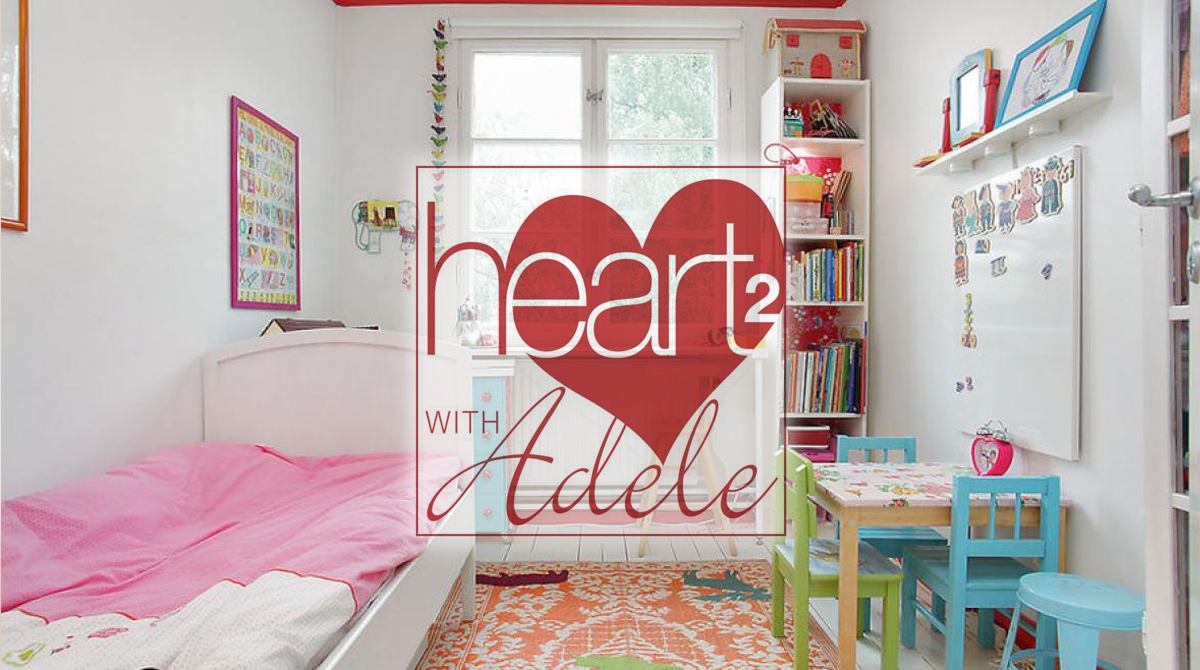
Managing messy munchkins
QUESTION:
Dear Adele,
Our three munchkins, ages five, eight, and eleven are driving us bonkers! They are wonderful children in so many ways, but their messiness is extremely irritating. You would think a tornado had gone through my eldest daughter’s room by Saturday, not to mention that the rooms of the younger two, had experienced summer storms with high winds. We are tired of them whining and complaining about having to keep their rooms tidy. Can you help?
Pickup Parents
ANSWER:
Dear Pickup Parents,
You are experiencing such a common problem! Unfortunately, our darling progeny are just not naturally organized and tidy. They require training and I have a few ideas which may help you.
For starters, I am assuming that the children’s rooms are not overly cluttered and that good storage arrangements are in place. Kids cannot be expected to keep a mountain of stuff in spaces with inadequate and disorderly storage choices. Shelving, baskets and boxes are necessities as is a dresser and a cupboard with hangers. Beds must be child sized. Bedding should be child friendly and easy to make up. With that being said I will address the child management part of this parenting issue.
Dr. Thomas W Phelan author of ‘1-2-3 Magic, Effective Discipline for Children 2 to 12’, has an excellent chapter on this topic which I will summarize for you. It is about the best I’ve seen on the subject and I recommend the entire book to you.
It sounds as though your children’s possessions are being left strewn all over the house and you can no longer tell the colour of the floors or carpets in their rooms. Am I close?
Firstly, do not lecture or nag the children. Give it up Pickup Parents because it does not work. Dr. Phelan offers two options to consider.
Option one is the ‘Close the door and forget about it’ approach. This approach depends on natural consequences. For example, if the children do not put their dirty clothes in the hamper their apparel will not be washed and they will not have the items they want, ready to wear. The hope is they will tire of the disorganization and start tidying up themselves. I am not sure this approach works with many kids, myself.
Option two is to establish a weekly cleanup routine. Dr. Phelan suggests a few options for parents should the children not clean the room as required by themselves. I prefer these strategies because they train the children into good organizational habits using positive and /or negative consequences.
The ‘Garbage Bag’ method is one. When the cleanup session is not completed by the required time everything on the floor is put into a garbage bag and placed in the garage, irretrievable until 6 p.m. the following day. You will likely get verbal pushback on this method but it has lots of potential for accomplishing your goal.
The ‘Timer and Docking method’ is a second possibility. A timer is set for the completion of the room cleaning. If the room is not cleaned by the specific time the child’s allowance or points in a point collection system, are deducted accordingly. This is a negative reinforcement method but has merit if other approaches have not worked.
‘Checklists and Charts’ is another idea. The parents list the specific tasks that must be accomplished in the cleaning of the room on a checklist. All requirements are spelled out in the minutest detail. If the child meets the checklist requirements by a specific time, a reward follows such as allowance, privilege and/or praise. If the child does not meet the requirements a negative consequence follows such as deductions from allowances or pay to the parent to complete the work. This works quite well especially when the positive reward system is in play.
‘Family Meetings’ can be useful when children are school age and up. The chores required to make the family unit run smoothly are discussed and agreed upon by the parents and children. They are listed on a chart and each household member volunteers for some tasks. A family cleanup time is established and everyone pitches in with the chores they have agreed to take on. I used this method in conjunction with allowances and privilege rewards for my family and it seemed to get things done. I also feel that It is good that children learn to take care of themselves and to share in the chores of the household. This will be required of them for life and should make them more desirable roommates, spouses and parents in the future.
Gaining compliance in having your children clean up after themselves is an important life skill. I suggest you try some of these methods if you been unsuccessful to date. Remember to use plenty of praise when tasks are completed well. Recognition and being told that one is doing a good job goes a long way with most humans including children.
Best wishes Pickup Parents, in managing your messy munchkins!
Sincerely, Adele
I'm looking forward to your questions! Email me at maryadeleblair@gmail.com and please put Heart to Heart in the subject line. Note that all columns will remain anonymous.









